武汉大学新编大学英语(unit2)课件
- 格式:ppt
- 大小:292.50 KB
- 文档页数:26

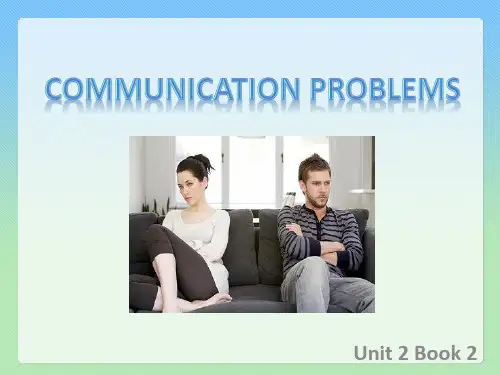

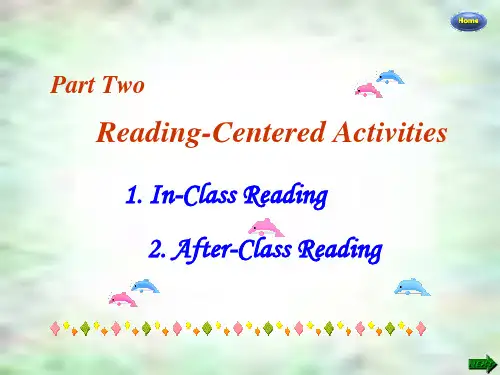
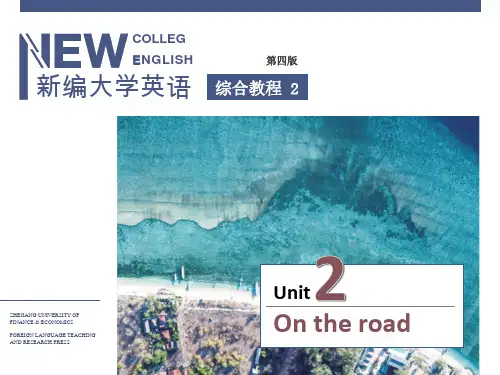
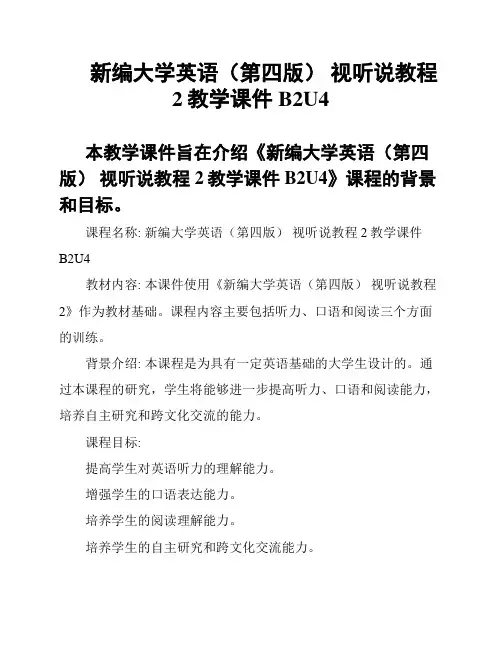
新编大学英语(第四版)视听说教程2教学课件B2U4本教学课件旨在介绍《新编大学英语(第四版)视听说教程2教学课件B2U4》课程的背景和目标。
课程名称: 新编大学英语(第四版)视听说教程2教学课件B2U4教材内容: 本课件使用《新编大学英语(第四版)视听说教程2》作为教材基础。
课程内容主要包括听力、口语和阅读三个方面的训练。
背景介绍: 本课程是为具有一定英语基础的大学生设计的。
通过本课程的研究,学生将能够进一步提高听力、口语和阅读能力,培养自主研究和跨文化交流的能力。
课程目标:提高学生对英语听力的理解能力。
增强学生的口语表达能力。
培养学生的阅读理解能力。
培养学生的自主研究和跨文化交流能力。
通过本课程的研究,学生将能够有效扩展词汇量、提高语法运用能力、加强语音和发音训练,并能够运用所学知识进行简单的口头表达和书面表达。
欢迎大家研究《新编大学英语(第四版)视听说教程2教学课件B2U4》,希望能给大家带来愉快和有效的研究体验!第二部分: 教学内容本教学课件主要包括以下内容:课文内容:介绍B2U4单元的主要主题和文化背景,讲解课文中的重点词汇和语法结构,并进行相关的阅读理解练。
听力练:提供与课文内容相关的听力材料,并设计相应的听力练,帮助学生提高听力技能和理解能力。
口语活动:针对课文内容和听力材料进行口语训练,通过问答、角色扮演等活动,激发学生的口语表达能力和交流能力。
教学课件将以简洁明了的方式呈现以上教学内容,帮助学生更好地理解和掌握B2U4单元的相关知识。
本部分将介绍在教授《新编大学英语(第四版)视听说教程2教学课件B2U4》课程时可以采用的教学方法和策略。
以下是几种常用的教学方法:互动式教学:在课堂上鼓励学生积极参与,通过提问、回答问题、小组讨论等方式激发学生的兴趣和参与度。
通过互动式教学,学生更容易理解和掌握课程内容。
小组合作研究:安排学生分成小组,通过小组合作研究来完成课程任务。
这种方法可以培养学生的合作能力和团队精神,同时也能增加学生对课程的深度理解。
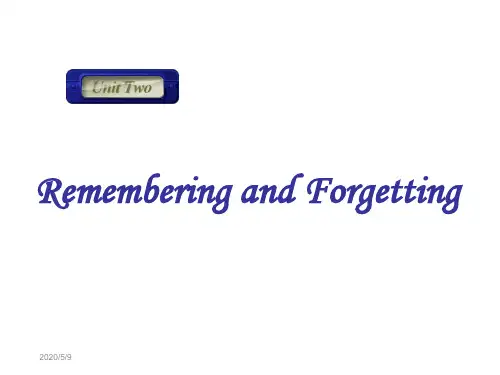
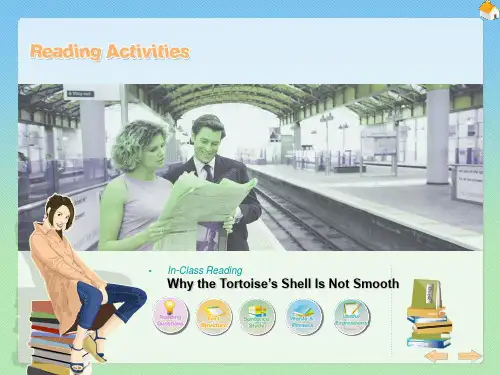
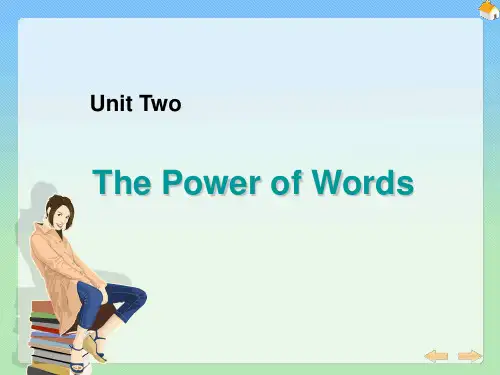
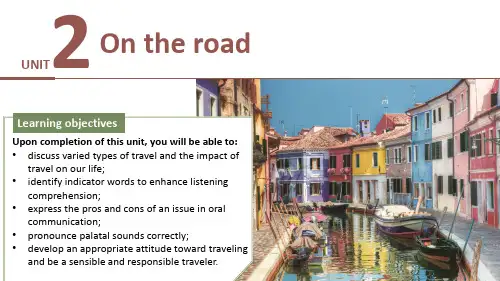

The Psychology of MoneyAre you a compulsive spender, or do you hold on to your mon ey as long as possible? Are you a bargain hunter? Would you rath er use charge accounts than pay cash? Your answers to these questi ons will reflect your personality. According to psychologists, our in dividual money habits not only show our beliefs and values, but can also stem from past problems.Experts in psychology believe that for many people, money is a n important symbol of strength and influence. Husbands who compl ain about their wives' spending habits may be afraid that they are l osing power in their marriage. Wives, on the other hand, may wast e huge amounts of money because they are angry at their husbands. In addition, many people consider money a symbol of love. They spend it on their family and friends to express love, or they buy th emselves expensive presents because they need love.People can be addicted to different things—for example, alcohol, drugs, certain foods, or even television. People who have such an addiction are compulsive; that is, they have a very powerful psycho logical need that they feel they must satisfy. According to psycholo gists, many people are compulsive spenders; they feel that they mu st spend money. This compulsion, like most others, is irrational—impossible to explain reasonably. For compulsive spenders who buy on credit, charge accounts are even more exciting than money. In o ther words, compulsive spenders feel that with credit, they can do anything. Their pleasure in spending enormous amounts is actually greater than the pleasure that they get from the things they buy.There is even a special psychology of bargain hunting. To save money, of course, most people look for sales, low prices, and discounts. Compulsive bargain hunters, however,often buy things that they don't need just because they are cheap. They want to believe that they are helping th eir budgets, but they are really playing an exciting game: when the y can buy something for less than other people, they feel that they are winning. Most people, experts claim, have two reasons for thei r behavior: a good reason for the things that they do and the real reason.It is not only scientists, of course, who understand the psycholo gy of spending habits, but also business people. Stores, companies, and advertisers use psychology to increase business: they consider p eople's needs for love, power, or influence, their basic values, their beliefs and opinions, and so on in their advertising and sales methods.Psychologists often use a method called "behavior therapy"[2] to help individuals solve their personality problems. In the same way, they can help people who feel that they have problems with mone y: they give them "assignments". If a person buys something in ev ery store that he enters, for instance, a therapist might teach him s elf-discipline in this way: on the first day of his therapy, he must go into a store, stay five minutes, and then leave. On the second d ay, he should stay for ten minutes and try something on. On the th ird day, he stays for fifteen minutes, asks the salesclerk a question, but does not buy anything. Soon he will learn that nothing bad w ill happen to him if he doesn't buy anything, and he can solve the problem of his compulsive buying.。